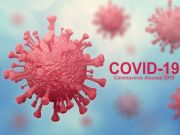
(HealthDay News) — Safety concerns over a malaria drug that President Donald Trump has touted as a coronavirus treatment prompted the World Health Organization on Monday to remove the medication from a global trial of potential COVID-19 therapies. Dr. Tedros Adhanom Ghebreyesus, the international health agency’s director-general, said the WHO decided to take a “pause”… read on >


















